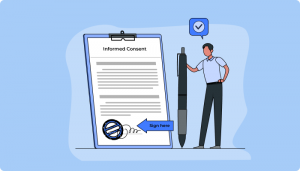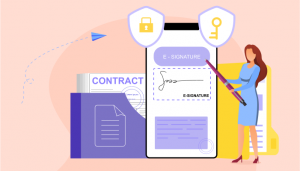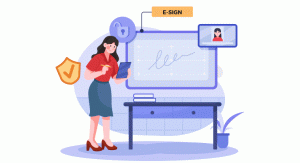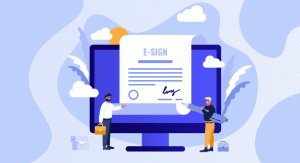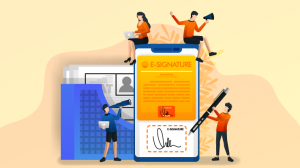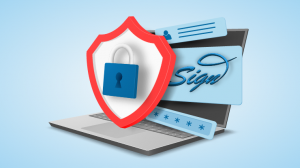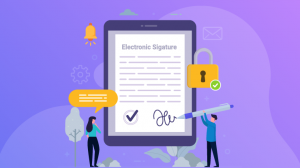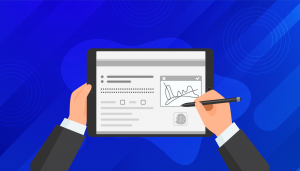Achieve More with Electronic Signature Blog
Find information-rich articles, how-to guides, and other useful tips on the Sign.cc blog.

How to Create an Electronic Signature in a PDF?
The adoption of a remote workflow is widespread among businesses. Electronic and digital signatures now make it feasible to authorize papers more swiftly and legally. The PDF file format, among others, supports electronic signatures. We'll walk you through adding an electronic signature in a PDF document in the section that follows.

Best & Free Electronic Signature Software in 2023
In comparison to handwritten signatures, electronic signatures are less expensive and more effective. It takes a lot of printing, hand-signing, and scanning to manually sign a proposal, contract, or estimate, which takes time for both the document's author and recipient.

How to Add Electronic Signature in Word?
A remote workflow is heavily used by organizations. It is now possible to approve documents more quickly and lawfully with electronic and digital signatures. Many different pieces of software, including Microsoft Word, support electronic signatures. In the following section, we'll go through how to add an electronic signature in Word.
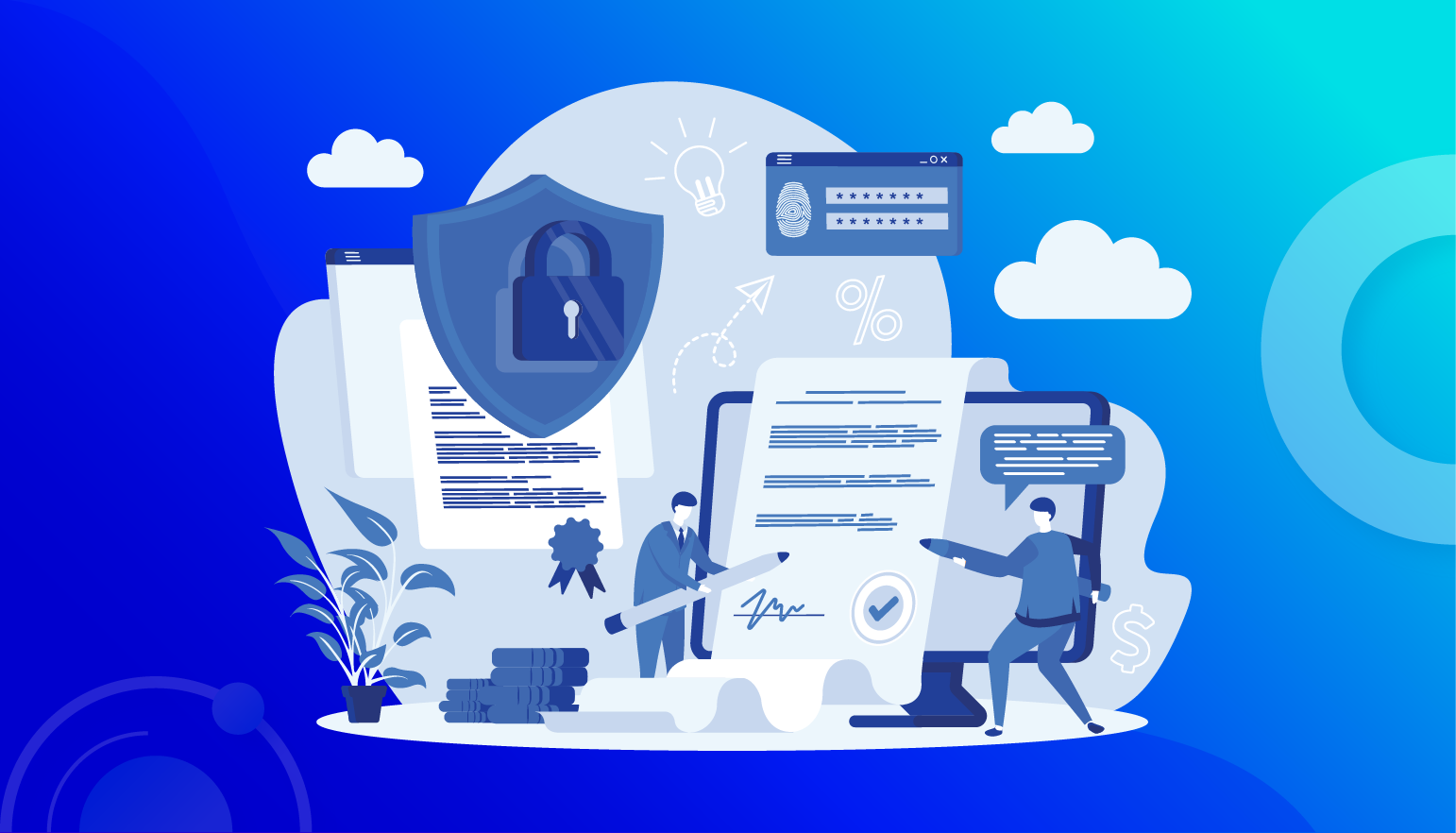
Featured Story
Which Industries Must Use Electronic Document Signing App?
Signatures are required in practically every department. Employee requests and other papers are handled by human resources. It is required by the finance department to sign invoices and purchase orders. It is used by the legal staff while creating agreements and contracts. When entering new client relationships, sales benefits from it. Printing a document every time you need anything signed takes time and money. Trusted digital signatures, on the other hand, allow you to maintain your complete workflow online and provide more security than unstandardized digital signatures.
Join the SaaS Revolution
-
All-in-One Suite of 50 apps
-
Unbelievable pricing - $14.99/user
-
24/5 Chat, Phone and Email Support
Recent Blogs
Here's what we've been up to recently.

Sign Documents Online From Anywhere: Top 10 Picks (2023)
A signature app to add a digital signature is the best way to make legally binding documents enforceable, even if the paperwork isn't done on paper. Closing a deal can be time-consuming without an eSignature app. Salespeople often change document formats, print, sign, scan, and reformat before sending documents to the recipient. The recipient also has to follow the same time-consuming process. This is where eSignature apps come in handy!
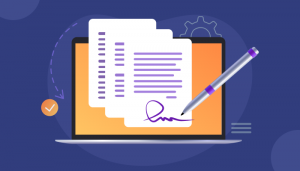
Top 13 Digital Signature Online Tools for Your Business
Traditional paper-based signatures are increasingly being replaced with digital ones, particularly in business transactions. As there are more and more transactions taking place online, digital signatures provide a safe, practical, and effective method of signing papers.
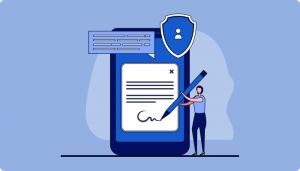
Top 10 Online Signature Maker Tools
The advent of electronic signature software has revolutionized the way business is conducted. Gone are the days of laboriously sending, signing, scanning, and filing away piles of paper documents. Today, a simple online signature is all needed to finalize a deal. Save time and streamline your document signing process with the convenience of these signature tools.

12 Best Digital Signature Apps for Signing
This blog will explain how the digital signatures function in brief. We would then list down the 12 best apps for digitally signing your documents and mention some of its uses. Digital signatures are beneficial for a lot of reasons, every business knows better than to not use them.

Online Contract Signing: A Comprehensive Guide
Identification of contracts and pertinent papers supporting the objective of a contract is the first step in the contract management process. A contract operates as a binding agreement between a firm and any other entity, making it crucial for businesses.
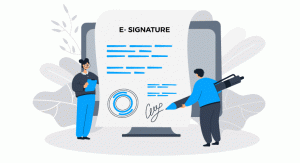
7 Steps to Create Your Electronic Signature Online
Electronic signatures allow you to sign legally binding contracts online without having to use a pen or paper. Thus, it may be used to sign documents remotely and provide immediate results. As a result, it is a must-have for many small firms and large firms.

A Comprehensive Guide for Creating E-signatures
An electronic signature or e-signature is one of the most trusted and secure elements that gets used instead of a handwritten signature in multiple processes. The efficient and legal way of documentation has received a positive response from individuals and organizations in the past few years.

Benefits of Having Electronic Signatures in AEC Sectors
According to a recent survey by Creation Technologies, the average employee with signature ability spends $1,350 per year on paper-related expenses. The expenses can quickly mount in the signature-heavy architecture, engineering, and construction (AEC) industry, where project plans, RFIs, contracts, drawings, and designs all require many signers. Using an all-electronic workflow for signing, exchanging, and storing documents might drastically cut these costs.
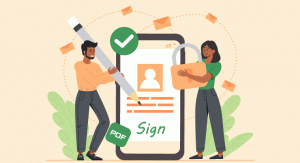
7 Proven Ways to Sign PDF Online
A person can use an online signature to give consent or signify that they approve of the contents of a document. Online signatures, often known as e-signatures, can be legally enforceable in various situations. Examples of online signatures include the individual's written name, an uploaded image of the person's cursive signature, or a signature drawn on a smartphone or tablet screen. Digital IDs are used in some online signatures to ensure that the person signing the document is who they say they are. It improves transparency and builds confidence between customers, business partners, and vendors.

5 Reasons Your Sales Team Needs Digital Signature Creator
The sales process is currently undergoing a digital makeover. And we've already seen how this revolution is taking shape across a variety of industries, including healthcare, education, automation, and so on. Companies must first provide their sales staff with the tools they need to reduce time spent on repetitive, time-consuming tasks. After all, for many businesses, sales represent the bottom line.

8 Best Electronic Signature Apps
We've all experienced how time-consuming signing a document online without utilizing an electronic signature app can be. Signing an online document without an electronic signature app requires several tedious and time-consuming activities, such as formatting, printing, scanning, and reformatting before sending it to the intended recipient. Electronic signature apps come to your rescue by saving you from all this hectic work. This app allows you to sign a document in a matter of seconds, thus saving time for you and your clients.

How to Use Electronic Signature Online?
Electronic signatures are an efficient way of signing documents, contracts, and other agreements online. They benefit the users in several ways and allow them to sign from any device conveniently. Online Electronic Signature tools benefit businesses by allowing them to optimize their internal and external workflow effectively.
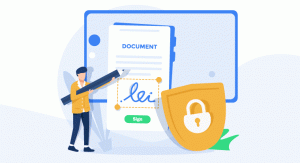
8 Best Digital Signature Software in 2022
A digital signature, a type of electronic signature, is a mathematical procedure commonly used to confirm the validity and integrity of communication like an email, a credit card transaction, or a digital document. Digital signatures generate a unique virtual fingerprint for a person and are used to identify users and safeguard information in digital messages or documents.
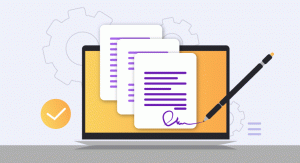
Step-by-step Guide to Create Electronic Signature
Electronic signatures are similar to digital "fingerprints." In other words, an electronic signature securely associates a signer with a document via a digital numeral value. They are more convenient than traditional signatures since they may be used to sign papers remotely, making the recipient's location unimportant. As a result, e-signature technology has become a must-have for many firms around the globe.

Top 10 Features of Digital Signature
A digital signature is a contemporary substitute for signing papers with pen and paper. It checks the validity and integrity of digital messages and documents using an innovative mathematical approach. It ensures that the contents of a message are not altered while in transit and aids in preventing impersonation and tampering in digital communications. They are also used for email service providers, financial transactions, and software distribution, all of which need the legitimacy and integrity of digital communications. The data authenticity and integrity of a digital signature are ensured by industry-standard technology known as public key infrastructure.
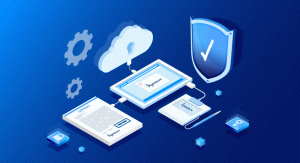
5 Easy Steps to Generate Online Signature
People have utilized many methods to accomplish transactions throughout history. By the Middle Ages, people were frequently using markings or symbols to demonstrate that they had personally authorized a document. It eventually became customary to sign documents by spelling out their names.

Real Estate Sector: Simplified with Digital Signature Creator
Whether you're an agent, a client, a broker, or a seller, digital signature software can assist you in getting paperwork signed in a timely and efficient manner. Many real estate professionals will have to deal with multiple out-of-state or international clients, which can complicate the document management process and make your workflows inefficient.
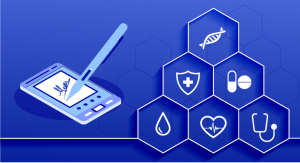
How to Choose a Digital Signing Software for Healthcare Sector
If you only think of the signing pad your patients use for in-office signatures or the digital signature tool embedded in your EHR when you hear the phrase "digital signature for healthcare," you may be missing out on the all-encompassing potential of a full-service digital signing software to transform the patient experience and staff efficiency. Going beyond your EHR to create more effective paperwork processes throughout your whole healthcare business entails implementing a digital signature system that can satisfy patient expectations and fulfill your diversified paperwork demands.

Uses of Electronic Document Signing Apps in the Legal Sector
Court filings, contracts, agreements, and other paperwork must frequently be signed by attorneys and their clients. However, legal firms squander time and resources due to the inconvenience of printing, signing, and scanning papers. Digital signature software (also known as eSignature) allows you to sign documents electronically and authenticate the signer more quickly and securely than a physical signature.

Benefits of Electronic Signature in Human Resource Sector
If you work in HR, you're undoubtedly already aware of the fundamentals of obtaining signatures on offer letters, government paperwork, business policy agreements, and other employee papers utilizing electronic signature technology. But it is only the tip of the iceberg when it comes to the advantages of electronic signatures for HR departments. HR departments will need to start embracing smarter technologies and automation to better understand their workers and streamline their operations in 2021 and beyond if they want to prosper.

Best Tools to Create Electronic Signature Online in 2022
As companies continue to undergo digital transformation, the need for paperless transactions becomes greater. The print and sign method of authenticating documents slows down operations and wastes time, costing money and dampening productivity. Now, companies are turning to electronic means as an alternative to the conventional, creating electronic signatures and contracts.

Applications of Digital Signing Software in the Financial Sector
It's the year 2022, and it's time to go digital. Sure, you've undoubtedly moved some procedures online, but with clients and staff alike demanding simple, quick methods to interact and conduct business, you'll need to remain on top of all new technologies and trends to keep your consumers seeing you as a financial services thought leader.

5 Ways Electronic Signature Maker Helps in Closing Contracts Faster
Historically, seals bearing individuals’ insignias have served as material confirmations of consent. Sealed documents were formal documents, and were considered the most legally binding class of documents. Over time, the society put aside the rigidities and relegated the use of seals to a mere formality. In time, signatures replaced seals as legal material assent to documentation. Now the world is moving a step further by digitizing signatures.
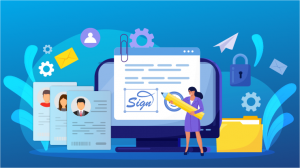
Transform Vendor Contracts with Digital Signature Software
Traditionally, contracts are drawn up and printed on paper, signed by the contractor, and then sent to the other parties to be signed. This then makes the contract formal and legally binding. However, with the advent of technological solutions like digital signature software, you can now skip the long, traditional process of printing and sending, and skip straight to the formalization of the agreement by using digital signature software to make it easy for you and the other parties to append the relevant signatures.

Make Your Agreement Signed Faster With Electronic Signature Software
A very important part of any agreement or contract is the signatures of the parties that make it legally binding on all who sign. Traditionally, this is done through signing on printed-out copies of the agreement, but with the advent of technology and the rise in eSignature software, this signature process has become simpler, faster, and safer. As a business owner, agreements are a key part of your activities, as they are used when working with wholesalers, retailers, some customers, etc. Hence, it is in your best interest to transition your paper-based processes such as signatures to an effective online process

Beginning of the Contract Management Process
Contract management processes begin with the identification of contracts and relevant documents that support the purpose of a contract. Contracts are important for a business as it serves as the bond between the business and any other entity. Due to its importance, manually writing contracts is cumbersome, especially in error avoidance processes. Contract management software has been built to solve this problem.

Revealing the Ultimate Properties of a Digital Signature
In a sense, digital signatures are electronic forms of handwritten signatures. Along with allowing people to verify the authenticity and integrity of data, these standards prevent the signatory from being able to repudiate their involvement.
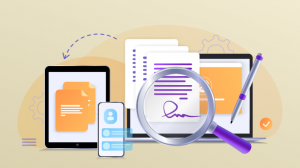
Ocean of Electronic Signature Software: Choose the Best One for You
The electronic signature software, just like every other software, is scattered across the internet. Day by day, new ones with special functions and capabilities are introduced to the market. One needs to therefore be on the lookout for the best eSignature tools that would serve the essential purpose in an organization

Uses of Electronic Signatures for Sales & Marketing Teams in Business
Electronic signatures enable salespeople to shift their emphasis away from paperwork and operational duties and onto critical objectives such as creating a healthy pipeline, enhancing the lead-to-win funnel, and increasing revenue. Enhance the visibility of the closure status.

10 Best Electronic Signature Services Providers for Your Business
The world is gradually moving towards becoming paperless and the COVID-19 pandemic has accelerated this as now, more than ever, people are working remotely. Thus, eSignature software are in high demand. Here, we take a look at the 10 best e-signature service providers.

